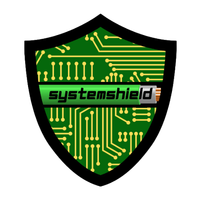Electrical Grounding Knowledge Base
Safe and Reliable Grounding with SystemShield
SystemShield’s Electrical Grounding Knowledge Base provides essential reference materials for certified electricians and technicians who are already skilled in the field.
Here, you’ll find straightforward guides and practical tips for installing and maintaining grounding systems with the SystemShield Grounding Kit. These resources are built for those who know their craft and want quick, reliable information to support safe, compliant installations.
The SystemShield Grounding Kit is specifically intended for certified electricians and technicians who are experienced in the grounding field. It is not designed for beginners or those looking to build foundational skills. Each component in the kit comes pre-cut, pre-stripped, and pre-crimped, minimizing on-site prep time and ensuring professional results with every installation.
RESOURCES
Codes and Standard References
ANSI J-STD 607B
ANSI/NECA/BICSI 607:2011
ANSI/TIA 607B: 2011
BICSI TDMM 13th Edition: 2014
BS 7430: 2011
IEEE 1100: 2005
IEEE 81: 2012
ISO/IEC 30129: 10.2015
NFPA 70: 2014 (NEC)
Motorola R56: 2005
SystemShield Grounding Kit Compliance, Standards, and RoHS Certification Documentation
SystemShield adheres to industry-recognized standards for electrical grounding and bonding, ensuring maximum reliability and safety across multiple sectors, including telecommunications, data centers, industrial automation, and power distribution.
These standards dictate proper installation techniques, material selection, safety measures, and performance requirements to ensure that grounding systems remain stable under load, protect equipment, and mitigate the effects of electrical disturbances
Why SystemShield Uses Isolated Bonding
SystemShield’s isolated bonding method eliminates ground loops, reduces EMI, and enhances system stability by creating separate, controlled grounding paths rather than relying on a single, interconnected grounding system. This advanced approach prevents interference from spreading across connected systems, ensuring consistent performance and protecting sensitive electrical equipment from voltage inconsistencies
